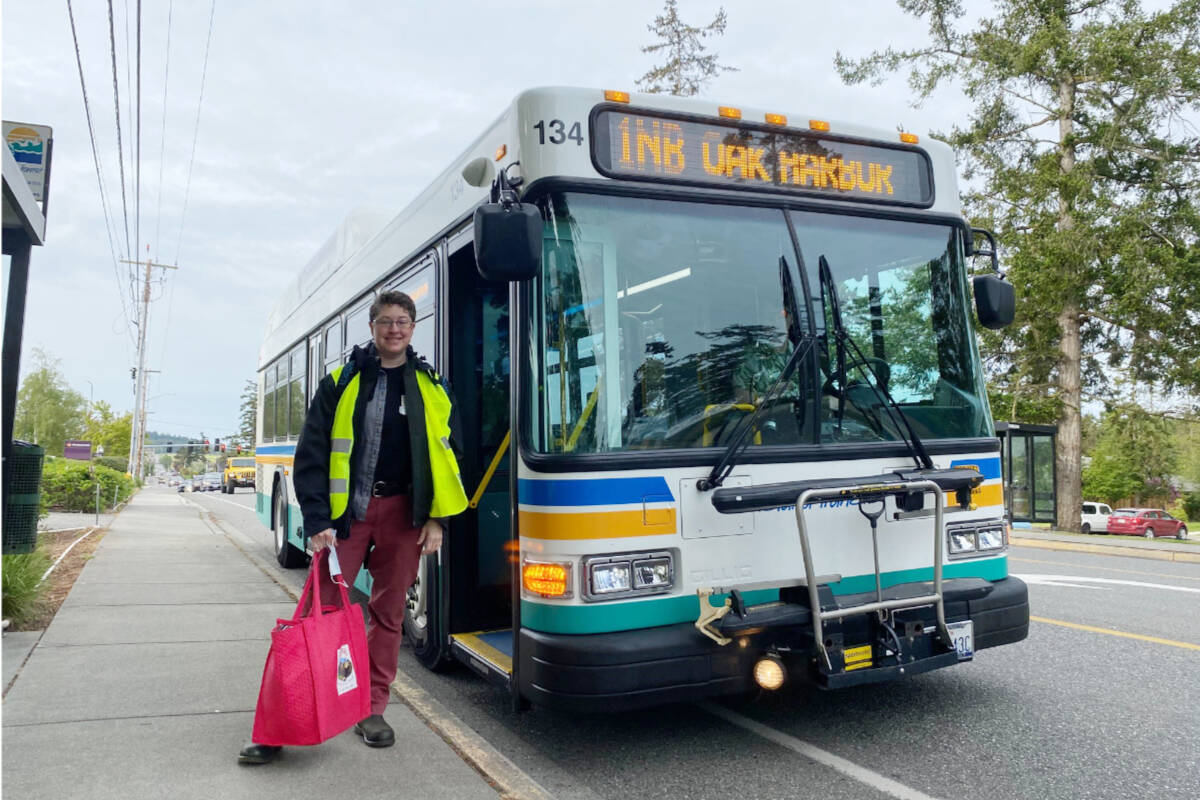Rebekah takes Island Transit from Greenbank to work at Whidbey Health in Coupeville, but that’s a fairly recent move. After riding Island Transit for 15 years, from three different homes and two different job sites Rebekah is a pro.
When they discontinued one of Island Transit’s most direct morning routes, Rebekah started walking part of the way. “Unless it’s pouring rain. It’s less than a mile.”
The bus is not a door-to-door service, but many people balk at the idea of taking a bike or walking the first or last mile to get to their destination even if there are sidewalks and streetlights. Rebekah took it all in stride.
With the changes to routes and schedules just after Memorial Day due to the shortage of bus drivers, Rebekah spoke with their supervisor about shifting the work schedule. The supervisor is accommodating. They’ve had to do this before. Island Transit’s Rider Alerts warn riders about the bus changes with enough time to work out the logistics of a new commute schedule.
Not only is Rebekah a veteran Island Transit rider, through their work at the hospital, they also assist others in using Island Transit services. They print out para transit applications for their clients just about every day.
For seniors on Medicare, fare-free para transit or fixed route buses may be the only way they can get to their medical appointments. If patients come in late or miss an appointment saying they had trouble using the bus, Rebekah sits down and talks them through it. “It’s easier than you think.”
Rebekah shows them the schedule and routes they could use. If they need further assistance, they can call Island Transit’s dispatch at
In 15 years of taking the bus, Rebekah says, “If there is a mistake that can be made, I have made it.” But it’s all part of the learning process. Overall, Rebekah is grateful for the safe, fare-free, friendly services Island Transit offers.
They do wish the many students that ride the morning bus would say thank you to the driver as they depart. “When I was a student, I took the bus and we always thanked the drivers – it’s just common courtesy.”
Rebekah has made friends on the bus, met colleagues and neighbors. “It’s more than just a mode of transportation. It’s community outreach and engagement.”



